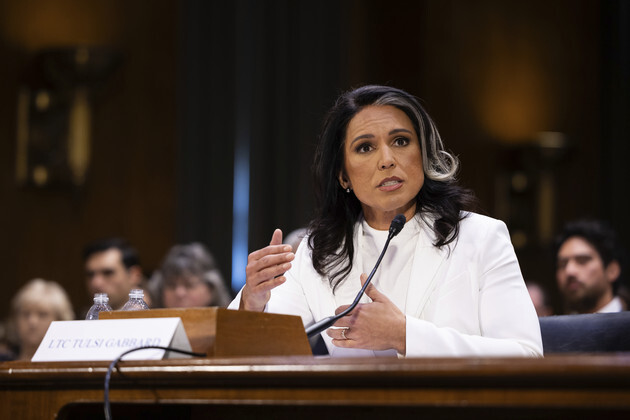Tulsi Gabbard’s confirmation hearing to become the Director of National Intelligence (DNI) on January 30, 2025, revealed significant challenges, particularly from Republicans who were skeptical of her views. While Gabbard, nominated by President Donald Trump, aimed to defend her unconventional foreign policy stances, her performance did not receive the same warm reception as other recent Trump nominees like Defense Secretary Pete Hegseth.
Key Republican senators, including James Lankford, Todd Young, Jerry Moran, John Cornyn, and Susan Collins, pressed Gabbard on her views regarding controversial issues such as NSA contractor Edward Snowden, Russia, Syria, and Ukraine. One notable moment came when Lankford questioned Gabbard about Snowden, asking whether she considered him a traitor. Gabbard’s refusal to provide a direct answer angered Lankford and others. Despite acknowledging that Snowden broke the law, Gabbard did not go further in condemning his actions, which many of the senators found problematic.
In addition to Snowden, senators questioned her past views on Russia and Syria, including her trip to meet with Syrian President Bashar al-Assad and her stance on U.S. intelligence assessments regarding Assad’s use of chemical weapons. The lack of clear answers on these topics raised doubts about Gabbard’s suitability for the DNI role.
While Gabbard remained combative and defiant, using her opening statement to describe the criticisms against her as “lies and smears,” the hearing’s tone reflected growing skepticism. Some Republicans, such as Senator Tom Cotton, showed support for her independent thinking, but many others were less convinced.
The confirmation process remains uncertain, with the Senate Intelligence Committee divided 9-8 along party lines. Gabbard’s ability to secure a majority in the committee will be crucial. If she fails to gain the necessary votes, alternative pathways could bring her nomination to the Senate floor, but that scenario would send a negative message regarding her chances for confirmation.
The hearing ended with the senators meeting behind closed doors for a classified session, which may influence their final vote. Senators like Collins and Moran have not yet made a decision, with the next steps dependent on the outcome of the follow-up discussions.

Leave a Reply